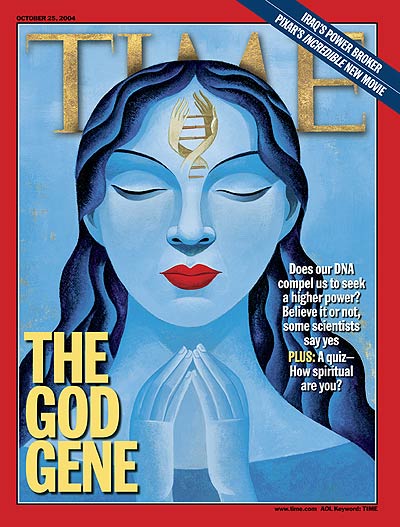
I’m a little behind on my newspaper reading so I just read the article by Nicholas Wade in the Times last weekend titled The Evolution of the God Gene. The concept of the “god gene” suggests that the desire to believe in a higher power is wired into the genetic makeup of human beings.
Mr. Wade reports that in the Oaxaca Valley in Mexico archaeologists have uncovered evidence of a transition in religious experience from a simple dance floor for communal religious dances in 7000 b.c.e, through ancestor-cult shrines from 1500 b.c.e, to astronomically sophisticated temples beginning in 30 c.e. Mr. Wade makes the point that religion is found in virtually every society at every stage of development and says that religion has been “wired into our neural circuitry.”
Religion is the belief system that we develop to give our life meaning, and as such it is represented astrologically by the planet Jupiter. In the chart of an individual, Jupiter’s placement shows the way that we construct our reality and what we believe in. It shows where we find meaning in life, and the kind of experiences that give us what we would call a “religious” experience.
Religion occurs when multiple individuals share the same belief system and that belief system is formalized. As Mr. Wade says, religion binds “people together, committing them to put their community’s needs ahead of their own self-interest.” Religion is about community rather than individual experience, but the urge to devise a theology that gives our life meaning is a universal urge that is symbolized astrologically by Jupiter.
Early discussion of the “god gene” related more to a direct experience of the divine or other mystical experiences, which has more to do with Neptune. Jupiter relates to the beliefs that we create around our experiences, and the way that we share those beliefs with others.
Mr. Wade’s article divides people into atheists and believers, but there he misses the point. Everyone believes in something, and if you ask an atheist what he believes in, he will likely say “the power of nature,” or “humanity,” or “the power of discrimination.” They may not share a belief in what one group or another calls “God,” but there is a belief system or a set of values that underpins everything they do.
Jupiter extends the personal belief system into a desire to share that belief system with others. In an astrological chart with a stressful aspect from Jupiter to, say, Pluto, the individual will have a tendency to want to convince others of the correctness of their belief system. Jupiter in a harmonious trine to innovative Uranus will have a more open mind, and Jupiter in a challenging square to Uranus will rebel against any organized religion.
Jupiter of course was King of the gods in the Roman pantheon, so it is only fitting that he embody what we are now calling “the god gene.” I’m sure he would be very pleased.

